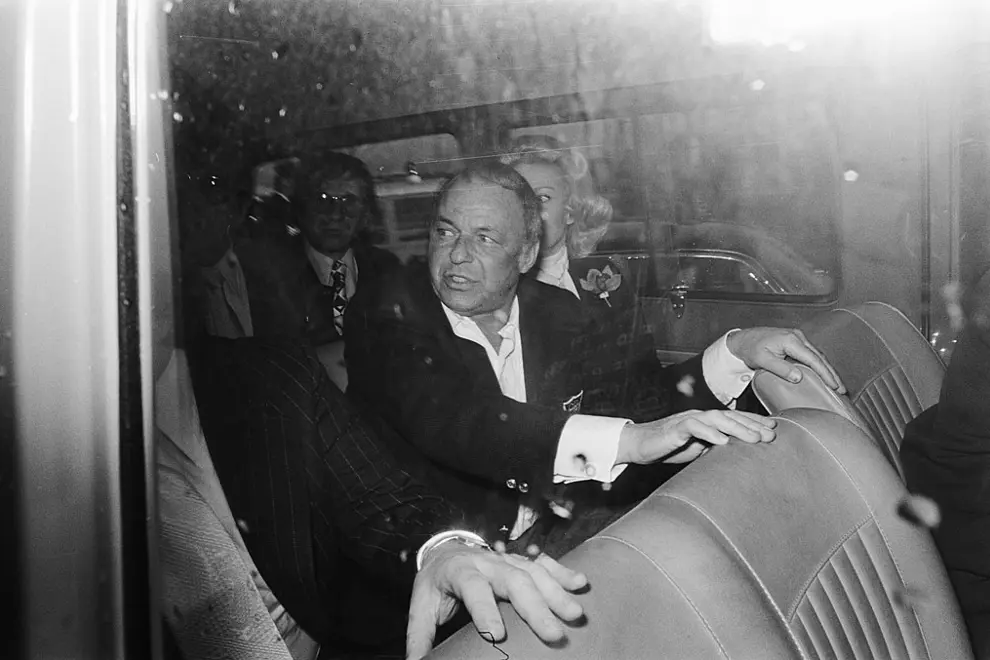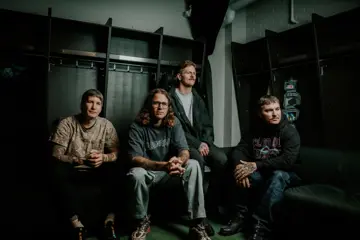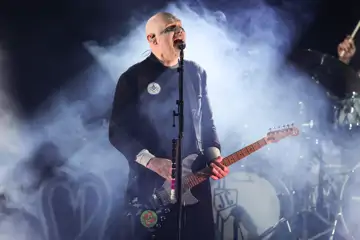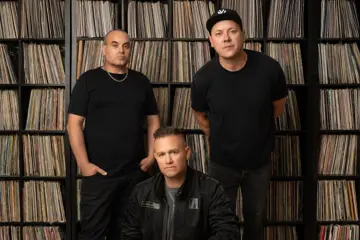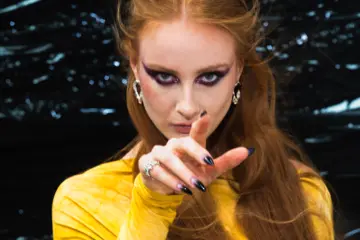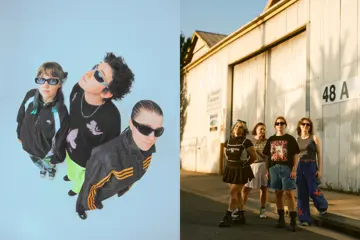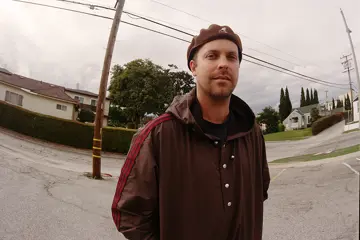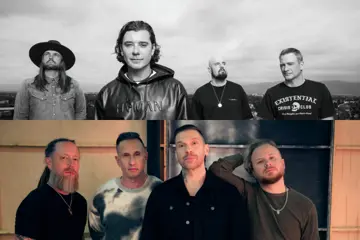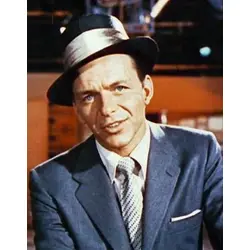 Frank Sinatra
Frank SinatraThey don’t make tours like this anymore.
Fifty years ago today, Frank Sinatra played at Festival Hall in Melbourne. The city’s glitterati were out in force, having paid $20 to be there.
The ticket price was unprecedented – when Lou Reed played the same venue the following month, tickets were $5.50. But the crowd certainly got their money’s worth, becoming inadvertently caught up in one of the biggest concert dramas Australia has ever seen.
When the Chairman of the Board hit the stage for his first Australian gig in 13 years, he was fuming. The local media had got under his skin, relentlessly chasing him since he’d landed in Sydney three days before.
Legendary publicist Patti Mostyn had warned promoter Robert Raymond: “Whatever you do, make sure he talks to the media. If he doesn’t cooperate with the media, they will take a position of anti-Frank.”
Don't miss a beat with our FREE daily newsletter
But with the shows sold out, Cranky Frankie refused to do a press conference or any interviews, so the press pack pursued him from Melbourne Airport to the Southern Cross Hotel.
Whenever Sinatra was chauffeured around town in a $50,000 De Tomaso Deauville, the press was right behind him, desperate for a scoop. “It was,” says Raymond, “a complete frenzy.”
The 58-year-old singer’s reputation preceded him. But in the lead-up to the shows, Brian de Courcy, who was working on the Melbourne leg of the tour, told the ABC: “They’ve built him up as a bit of an ogre; I can’t believe this at all.”
When Sinatra entered the Southern Cross via a side entrance, Channel Seven’s David Hill – who would later help Kerry Packer create World Series Cricket, launch Fox Sports in the US and become executive producer of American Idol – was there to greet him.
��Welcome to Melbourne, Mr Sinatra,” the reporter remarked. The singer was unimpressed, brushing past the media man, who turned to the camera and said: “Well, that was the entrance of Frank Sinatra to Melbourne, the singer that’s made world headlines for not being particularly friendly.”
But that was just the entrée to what Sinatra would serve up on stage that night. Ol’ Blues Eyes delivered a black eye, dedicating his traditional monologue to the local press.
“We’ve been having a marvellous time being chased around the country for the three days,” he said sarcastically.
“We have a name in the States for their counterparts: they’re called parasites because they take and take and take and never give. Absolutely never give. I don’t care what you think about any press in the world, I say they’re bums and they’re always going to be bums, every one of them.
“It’s the scandal, man, that really bugs you, it drives you crazy … they’re pimps, they’re just crazy. And the hookers, the broads who work in the press, are the hookers of the press. Need I explain that to you? I might offer them a buck and a half, [but] I’m not sure. I once gave a chick in Washington two dollars and overpaid her, I found out.”
The crowd initially laughed and cheered, but you could sense the singer crossed the line. As Barry Donovan, then The Sun’s industrial reporter (and father of Patrick Donovan, The Age’s long-time music writer and founding CEO of Music Victoria), noted: “If he’d stopped before he mentioned the broads are hookers line, things would probably have been okay, but at that stage, the audience response changed a bit.”
And things got worse when Sinatra returned to the Southern Cross after the show, with the singer’s bodyguards engaging in a nasty scuffle with the waiting media.
The following day, David Hill reported: “Normally what happens is the security boys play the game, and we play the game … but last night just totally freaked me right out. I’ve been covering news in Melbourne for about eight years, and we’ve done all the demonstrations and all the strikes, and I’ve never seen an attack like this on a television crew.”
In the ’70s, Australia was highly unionised, and the media union, the Australian Journalists Association, didn’t appreciate how Sinatra dealt with its members.
“This is just not done in Australia,” snapped the AJA head, Rick Hill. “The mafia might be able to do it in the United States, but it certainly doesn’t happen in Australia, and our union won’t tolerate it happening to our members, and that’s the end of it.”
Gail Jarvis, leading Channel Nine’s coverage, was asked what she’d say if she had 30 seconds with Sinatra. “I’d tell him I’d give him $1.50 for an interview because that’s what it’s worth.”
Sinatra was slapped with a union ban. It meant no room service at the Southern Cross, and members of the Australian Theatrical and Amusement Employees Association refused to provide lighting, staging and backing musicians at his shows.
And the Transport Workers Union refused to refuel Sinatra’s private plane, meaning he was stranded in Australia.
The journalists wanted an apology; Sinatra said he’d never apologised to anyone in his life and wasn’t going to start now. In fact, the singer wanted his own apology – “after 15 years of shit” from the world’s media.
Sinatra’s second Melbourne show was cancelled. And he started to call his powerful friends.
Holed up in his suite on the 15th floor of the Southern Cross, the singer barked at his attorney, Mickey Rudin: “Get Hank on the phone!”
It turned out that Hank was US Secretary of State Henry Kissinger.
Sinatra also wanted to contact his old buddy Jimmy Hoffa, head of America’s most powerful union, the Teamsters, and order them to black-ban Qantas in retaliation. He considered calling the US Navy to get them to send a helicopter from their aircraft carrier docked in Japan.
The US Consul General in Sydney cited the UN Universal Declaration of Human Rights that guarantees “the right of everyone to leave any country”, highlighting the “threat to impede Mr Sinatra’s freedom of movement, including holding him hostage in Australia”.
Australia was facing an international crisis. Enter Bob Hawke.
At the time, Hawke was president of the Australian Council of Trade Unions. The then Prime Minister, Gough Whitlam, told Sinatra: “There’s only one man who can solve this for you – Bob Hawke.”
“I think there was general support from the Australian people,” Hawke later told a UK documentary, Sinatra Under Siege. “They didn’t like the idea of some international celebrity coming in and having his hoods push people around and physically injuring them. That’s not the Australian way of doing things.”
Sinatra’s crew realised his Gulfstream jet had just enough fuel to get to Sydney, so they relocated to the Boulevard Hotel, where they agreed to meet with Hawke on July 11.
“You had an international super-ego meeting an Australian national super-ego, and they were both going to be going at it hammer and tongs,” smiles Barry Donovan.
“They [Sinatra’s people] started to realise they had a bit of a problem,” Hawke reflected. “I made it clear it could be resolved through discussion and negotiation.”
But the singer was still not in the mood to apologise. Mickey Rudin addressed the waiting media: “I want to make it clear now … the press has treated him unfairly, dealt with a lot of nonsense and trivia … [there was a] running game going about trying to take his picture, and because we won a few moves in that game, their noses were all out of joint.”
When Hawke ventured to the Boulevard’s Presidential Suite, he was greeted by Rudin, who declared, “You can’t stop us leaving the country!”
Hawke’s response was a classic. “Well, as far as I know, there’s been only one case recorded of someone walking on water. Unless Frank is going to be the second, I don’t understand how you’re going to get out.
“You’re here until you apologise.”
As recounted in Troy Bramston’s recent Hawke biography, Demons and Destiny, Hawke was shocked at how “fat” the singer was, realising he wore a corset in public.
Sinatra told Hawke he was a big supporter of unions. “That’s not the point, Frank,” the Aussie union man replied. “You might be able to get away with it in the United States; you’re not going to get away with it here.”
“What do you want?”
“It’s pretty simple, Frank: an apology.”
Gesturing to Rudin, Sinatra said, “Well, you work it out with him, Bob.”
After a bottle of Courvoisier brandy and a few cigars, Robert Raymond remembers that Hawke was “almost legless”, but they managed to issue a joint statement “on behalf of Frank Sinatra and Bob Hawke on behalf of the unions”:
Frank Sinatra did not intend any general reflection upon the moral character of the working members of the Australian media.
Frank Sinatra also expresses his regret for any physical injury suffered by persons as a result of attempts to ensure his personal safety.
It wasn’t quite an apology, but the tour was back on, with Sinatra’s three shows at the Hordern Pavilion going ahead, with one televised nationally by Channel Nine.
When Bob Hawke was elected PM nine years later, he received a note from Mickey Rudin. “My client, Frank Sinatra, and I wish to congratulate you on your election. It did not come as a surprise to either of us since after our meeting in July 1974, I made a firm prediction to Mr Sinatra that, eventually, you would be elected as the Prime Minister.
“Somehow, we both feel that we gave you a slight assist on your way to the Prime Minister’s office. While some of the other labour leaders created an unwarranted and unnecessary incident, your statesmanship in finding a solution to the problem was perhaps a small step in achieving your ambition.”
The letter came with a P.S.: “By the way, Mr Sinatra still believes that the gossip columnists are the hookers of the press.”
When Sinatra played Madison Square Garden three months after his Australian trip, he exclaimed: “Ol’ Blue Eyes is back. Or as they say in Australia, Ol’ Big Mouth is back.”
Sinatra’s 1974 Australian experience inspired the 2003 movie The Night We Called It A Day, directed by Paul Goldman (who later made the Michael Gudinski doco Ego), with Dennis Hopper as Sinatra. The film was retitled All The Way for the US market.
Sinatra would later explain, “A funny thing happened in Australia – I made a mistake and got off the plane.” He vowed never to return, but he came back in January 1988 to open the Sanctuary Cove resort on the Gold Coast.
This time around, he held a press conference and had his photo taken with all the members of the media present.

